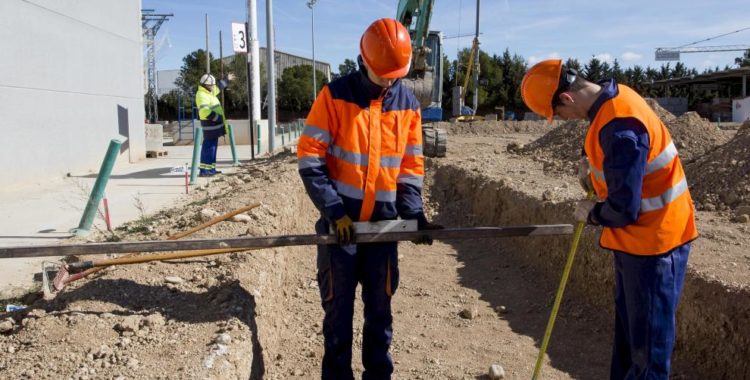Is Your Property Extension LEGAL?
How do you arrange exterior extension the correct way and what issues can arise from having an irregular extension?
These are questions we have almost every day at SGM Abogados. Unfortunately, most people are not correctly informed on how to legally extend their property.
Today, we are going to explain what issues can arise and how to legally extend your property to avoid future issues.
In Spain, a town hall license is necessary for any modification made to the exterior or interior of the property, even to paint the property you must ask permission to the town hall.
The correct way to arrange extension to your property is to arrange the necessary architects project and present the project to the town hall. The town hall must then issue a town hall license. This means the work you want to do, is authorised by the town hall, therefore, no neighbour can complain, nor can the authorities stop the work being carried out or request it to be taken down.
Once the work has been carried out and the extension completed the architect must visit the property again. They now arrange the final building act certificate, it must be the same architect who arranged the initial architect project. The architect will now confirm the work has been completed correctly and complies with the original project presented.
One of the biggest problems we have is the lack of this last document. The final building certificate is something the owner arranges with the architect when the works are completed. Many clients forget to do this and never get the final ‘signed off’ paperwork.
Another very important requirement is the community authorisation. If your property belongs to a community of owners, you must apply to the community for an authorization certificate. This is obtained by holding an AGM Meeting, where all the neighbours must approve the work being done. If the result is positive, the community issue a certificate, signed in front on the Notary.
Please be aware that without the community consent you CANNOT extend the property. This should be the first step you should do if the house below to a community.
Once you have all the above, you can legally include the extension on the tittle deeds, matching the description of the property to the reality of the property.
The main issue that arises from this, is 90% of the properties in our area, belong to communal grounds but have no community services. Therefore there are no community payments, so the community of owners is never formed.
When arranging an extension, if this is your case, you will have the issue where you cannot obtain the community authorization certificate because there is no community of owners, so you will not be able to include the extensions on to the tittle deeds due to missing the authorisation.
The fact that the extensions are not included on the tittle deeds does not make it illegal. What makes it legal is if you have the town hall license. If you do, it means the extension is authorised by the local authorities so no one can request the extension to be taken down. It does however mean you will not be able to include them on your title deeds which should be requested by your buyers when you sell the house.
Not having the town hall license is when the extension may cause issues.
One option if you didn’t apply for a building licence before is to now apply for an Antiquity Certificate.
What is an antiquity certificate?
The certificate of antiquity of the house is a legal and official document in which the date of completion of the construction of the house is indicated, since in many cases, this is the only thing that appears is the description of the land where the building construction.
What is an Antiquity Certificate for?
The main function of the Antiquity Certificate is to allow the registration of a home in the Property Registry. They usually deal with whole houses or buildings. They can also refer to subsequent home extensions or auxiliary constructions (swimming pools, barbecues, storage rooms, etc …).
This certificate is also necessary to request some procedures such as the certificate of occupancy or the license for the first occupation, among others.
If an extension was done before August of 2014 without the town hall license, the antiquity requested is 4 years since this date.
For an extension to comply with antiquity, and architect must visit the property and confirm the extension has been done for over 4 years before August 2014. If this is the case, the architect can issue an antiquity certificate, which will confirm the above.
Even if you take this route to include extensions, the community authorisation is always necessary, irrespective of the way you legalize the extension.
If the extension is arranged by antiquity, its always advised to obtain an infraction certificate from the town hall, to confirm the extension made complies with the local urbanistic requirements. There is always a small risk, when extension have been done without the town hall license, that the extension made does not comply with the regulations, this can intake the town hall visiting the property and issuing a penalty fee and may be requested to take the extension down.
If you have made an extension after august 2014 and without the town hall license, the laws states that 15 years must past, before it can obtain the antiquity certificate. This means, that the extension cannot be included in the tittle deeds until 15 years, which is a very long time. In those 15 years, the town hall can visit the property and as above mentioned, they can issue a penalty fee and request the extension to be taken down and the property taken back to its original state.
What are the urbanistic requirements?
Amongst many others, each property in Spain has a maximum buildable meter “metros edificables”, so this must be taking into consideration when arrange extensions and you may go over the buildable meters allowed for your plot. Another urbanistic requirement is, it must comply with the boundaries, each town hall and each property have different requirements, but there must be a certain distance from the boundary wall, so no extension interferes with the neighbours.
If you are thinking about extending or have doubts about the extension made on your property, by yourselves or by the previous owners, we at SGM abogados specialise in property extensions and we can offer you the service to inform and rectify the property. Or in the case you are looking to arrange a new extension we can assist you in obtaining the necessary information and documentation to avoid you having any issues with the legality of the work carried out.
Post by Grace












